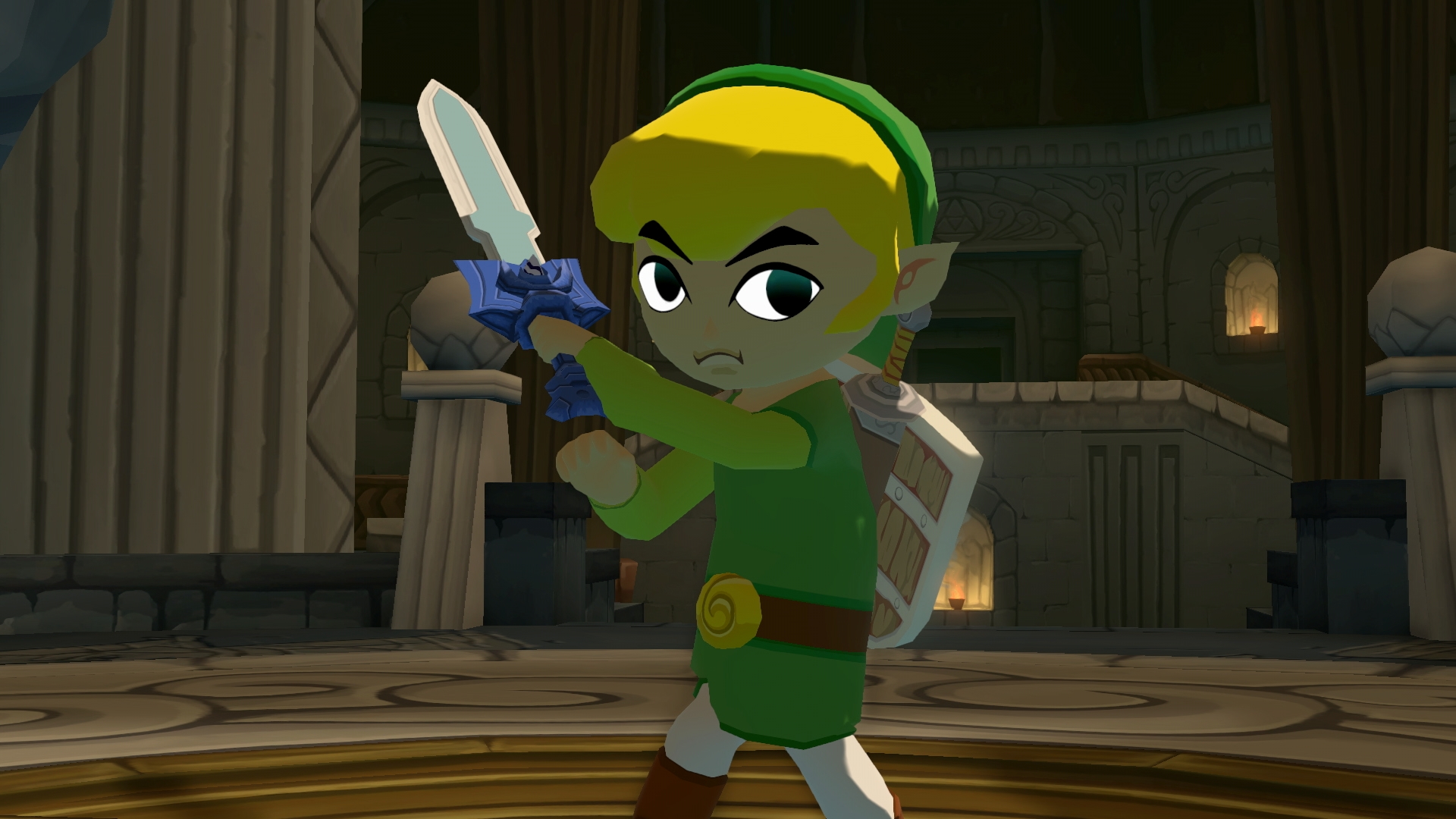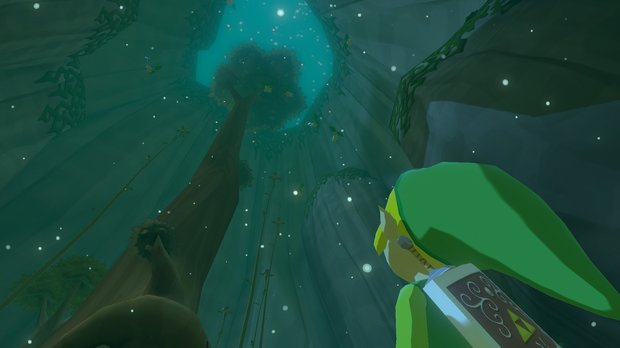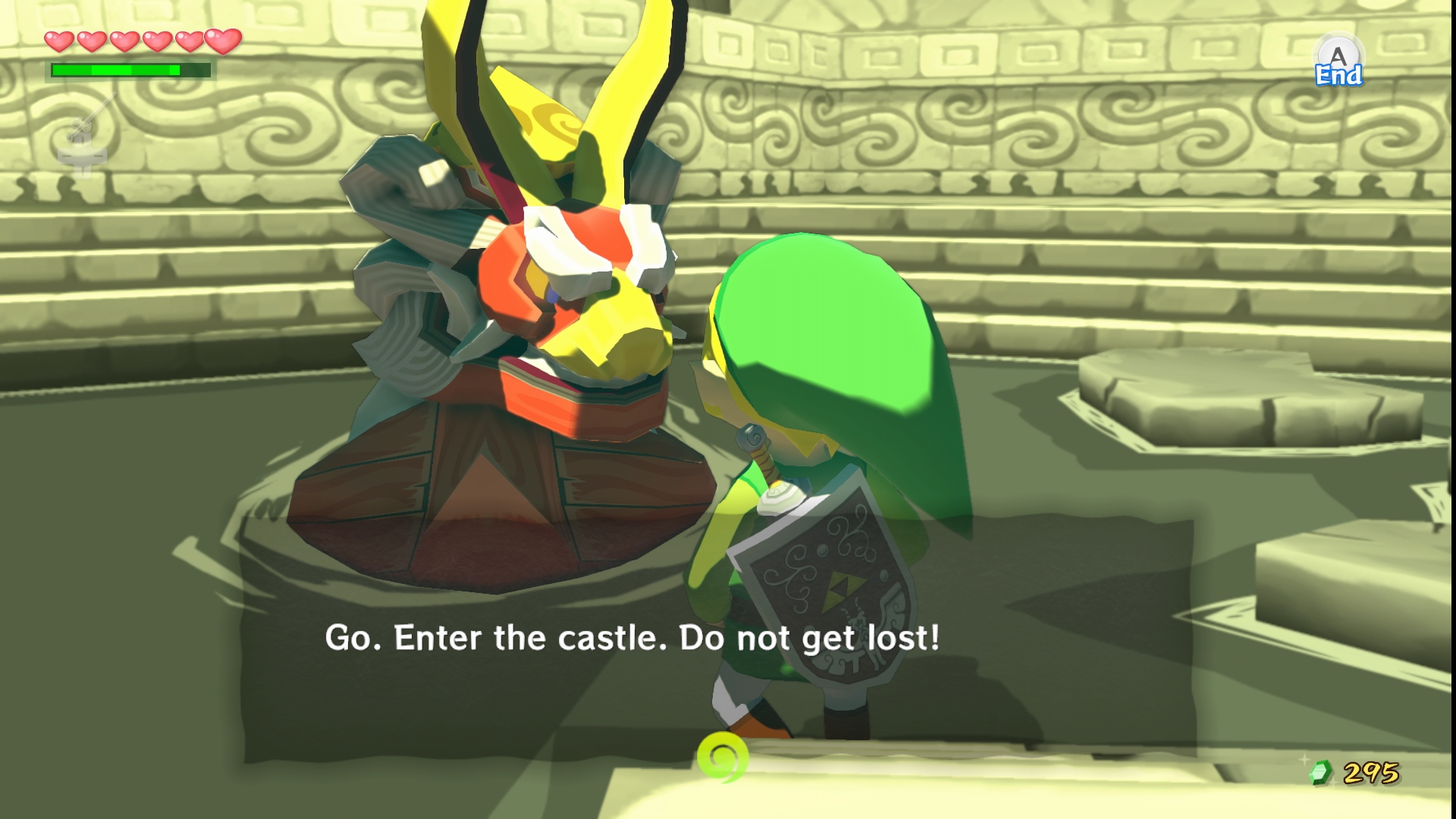Top 100: Generation-spanning glee makes Wind Waker a true classic
If there’s one moment that symbolises what Wind Waker means to me, and to the Zelda series, it’s when Link descends to the bottom of the vast ocean to find the ancient ruins of Hyrule Castle, suspended in time. Moblins and knights stalk the halls, frozen in their patrol routes. The colour has faded and everything is washed-out sepia, making the bright green of Link’s tunic look even more vibrant. Walking through the Great Hall is a goosebumps moment - as is (minutes later) the moment where Link retrieves the ancient Master Sword and reanimates the castle, returning movement and vibrancy to this ancient place.

The Zelda series may only be 25 years old, but it’s ancient in video game terms, and in the middle of the ‘00s it was in great need of a refresh. Wind Waker is everything you could have asked for: it’s creative, humorous, good-hearted and clever, like almost all the Zelda games, but it was also original, both in its vivacious cartoon style and its unconventional structure. It is, still, my favourite Zelda - a towering monument to creativity and originality in a series that often doesn’t get enough credit for either of those things. And that's why it's so high in our Top 100 games of all time.
Wind Waker was neither the first Zelda nor the last to leave Hyrule behind, but its watery world rejuvenated the series, washing away old traditions that had come to feel restrictive. It came along at an important time for me, when I was a teenager half out of love with video games and questioning whether they were going in any kind of interesting direction. Wind Waker, with its adventurous spirit and loveable story and playful innovations, won me over to games again.

Sailing between tiny islands poking out from Wind Waker’s vast sea is the truest embodiment of the spirit of exploration at the Zelda series’ heart. You genuinely never know what you might find when you spot a jutting shadow in the distance and adjust course to investigate it. You’re given gentle direction between the game’s main dungeons, but what you find on the way there always feels like a discovery, rather than something you were led to. Some people tire quickly of sailing, but for me it’s the best part of the game: setting a course, changing the wind, and sitting back as seagulls fly alongside Link’s little boat, letting the Great Sea Theme wash over you - a rousing, enlivening piece of music equalled only by Link to the Past’s overworld theme in emotional resonance. Man, that soundtrack! I defy you to listen to the Dragon Roost Island Theme right now and not hum along.
It was also the first Zelda in which the titular character played more than a bit-part in her own story. Tetra - later revealed to be the descendant of the legendary princess - is witty, assertive and eminently likeable, making hapless little Link look like the inexperienced village-boy that he is. She certainly ain’t no damsel, and Link and Zelda pairing up for the final battle is another of my all-time favourite Zelda moments. Happily, most subsequent Zelda games have preserved this. I think it’s Wind Waker’s best narrative contribution to the series as a whole.

This is the best-looking of the Zelda games, in my estimation. Link himself is so wonderfully expressive; the little sneaky face he makes when sidling up against a wall still makes me smirk every time. The details and effects - the curls of cartoon smoke, the foam left in your wake as carve a path across the seas, the flickering light of torches - blend perfectly with the cartoon style. Nothing ever looks out of place. Naturally the Wii U re-release is a thing of beauty, but even when you look at the original Gamecube version years later, Wind Waker’s style has prevented it from ageing. Instead of reaching beyond the limits of its technology it works perfectly within them, something that Nintendo games have always been great at doing.
Nothing compares to the feeling of playing Wind Waker. It’s tighter and more concise than Ocarina of Time, and lacks Majora’s Mask’s eerie melancholy - but it’s also the most joyful of all the Zeldas, the funniest and the least self-conscious, revelling in the concept of play in all its many forms, from throwing pigs into the sea to swinging around on a grappling hook to chasing stubby-legged little children around a windmill. It returns me, whenever I play it, to a childlike state of glee. It both stimulates and feeds on your own curiosity, adventurousness and inquisitive nature. It’s a glorious adventure, a perfect little self-contained world, one of those games I can’t wait to share with my kids (if I have any).
Sign up to the GamesRadar+ Newsletter
Weekly digests, tales from the communities you love, and more
It is, without doubt, a generation-spanning classic.


